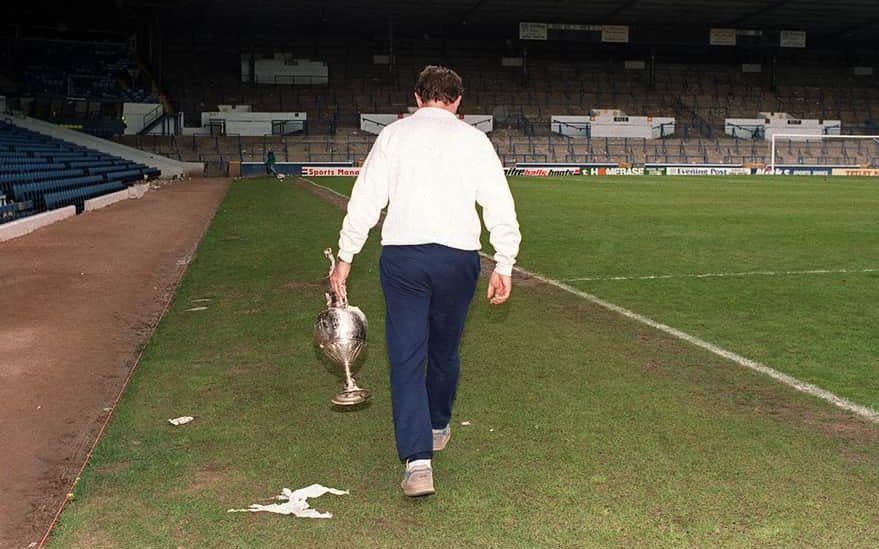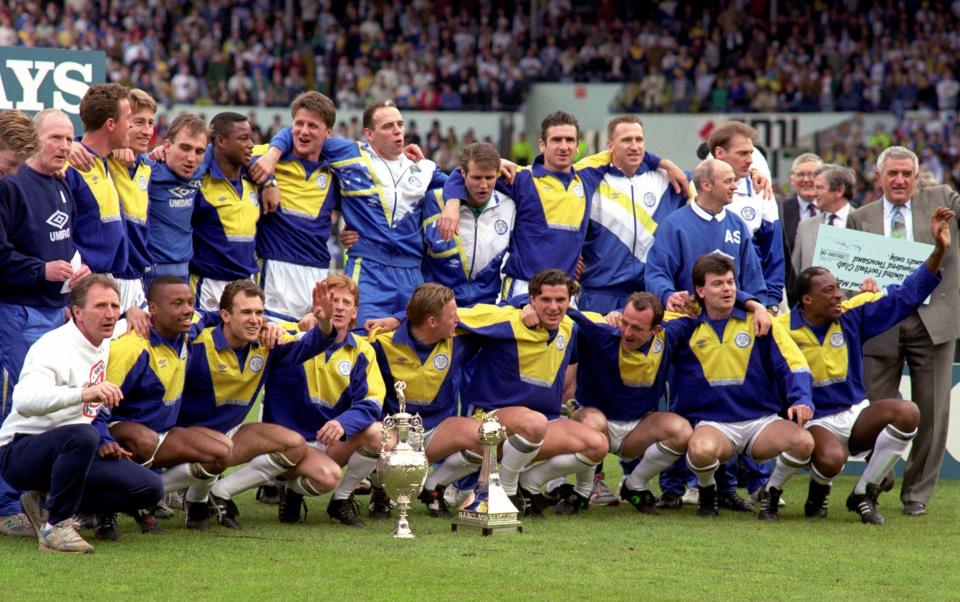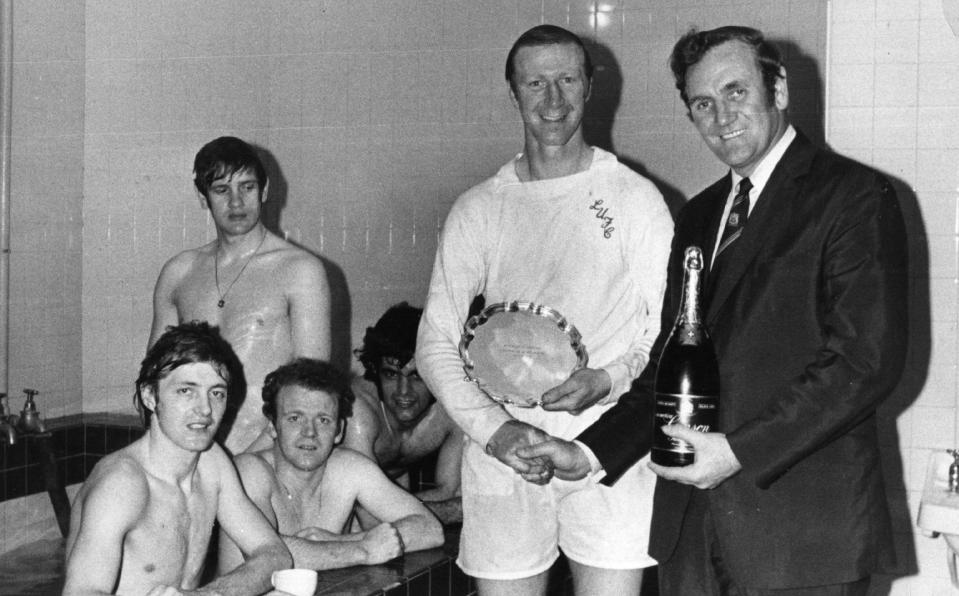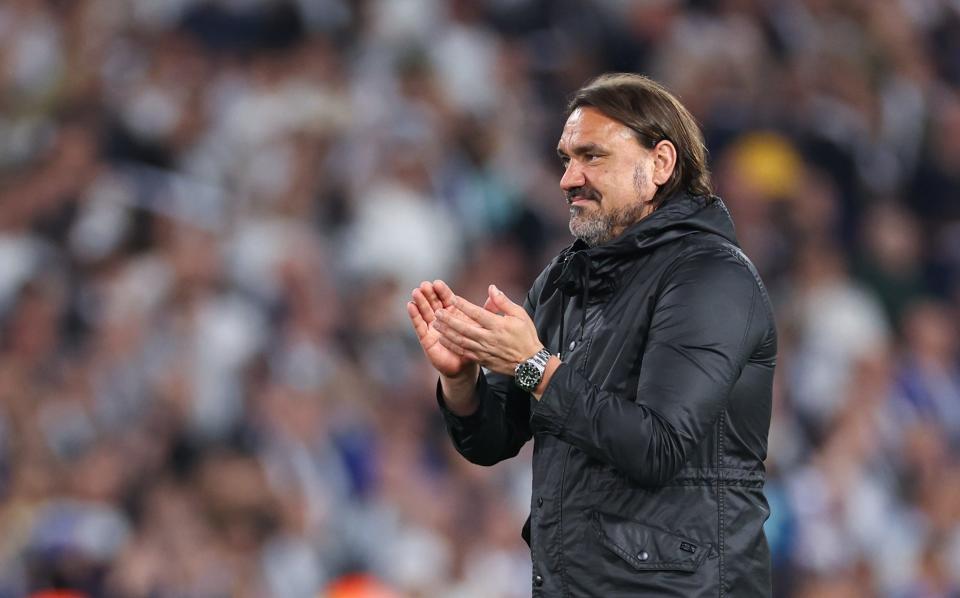Howard Wilkinson remains the definition of the Yorkshireman. When asked how he is enjoying a well-deserved break in Mallorca after ending his long tenure as president of the League Managers Association, he doesn’t miss a beat.
“Fair to mediocre,” he says about his stay.
And the thing is: he means it. Much like he was as a manager, Wilkinson is not someone who has ever knowingly embraced the positive side of life.
But eternally gloomy or not, what a record he has. Not least because of his rare distinction as the last English manager to win the title in England’s top division. But when he pushed Leeds United to become the last champions before the arrival of the Premier League in 1992, he never imagined that none of his compatriots would be able to match his feat over the course of three decades.
“I’m obviously surprised,” he says of being the last to do it. “But times have changed. When I was manager there were actually four nationalities in charge of the clubs: English, Scottish, Welsh and Irish. Now there are managers here from all over the world. But does it keep me awake? No, I don’t.”


At Elland Road, 30 managers, including carers, have taken over since Wilkinson left. Today the manager is a German, Daniel Farke. But Wilkinson says that regardless of the nationality of the coach, the priority has not changed. Like Farke last summer, Wilkinson was recruited by the club with the simple task of getting them promoted back to the top flight. In October 1988 he received a call from Leslie Silver, then chairman of Leeds. Wilkinson was in charge of Sheffield Wednesday at the time, having guided them to promotion in his first season. Before that he had been in Notts County and done the same thing.
“I got two or three calls about the job,” Wilkinson recalls. “And after a while I gave in and said yes, I’ll come and talk to you about it. I made it clear that I did not want to move. Leslie Silver started off smartly by saying, “well. If you don’t come, would you give us some advice on how we could do what you did at Notts and Sheff Weds?’ I quickly realized that he was both a gentleman and someone who was true to his word. When I agreed to take the job and told him my plan, he said he was willing to support me financially with whatever was needed. And he was.”


When asked what his plan was, Wilkinson pauses for a moment. This is not someone who embraces modern terms like philosophy or tactical blueprint. If he had been asked what his philosophy was, the conversation would most likely have ended immediately.
“To put it simply, you have to find a way to win,” he says of his methodology. “There are a thousand stories behind that. Basically, you take what you have, find out what you’re best at, then get on the practice field and work on it. I can’t buy any of that philosophy, b——-. My style was always determined by the players I had at my disposal.”
At Sheffield Wednesday, for example, he was the first English manager to play three at the back, with his wing-backs pushed forward into auxiliary wingers. But that didn’t mean he intended for Leeds to play the same way. Especially since when he arrived at the club they were perilously close to the Second Division relegation zone; he simply realized that they had to start winning, right away.
“It wasn’t appropriate for the Leeds players,” he said of his tactical innovation on Wednesday. “In addition, thanks to the support of Leslie Silver, I had the opportunity to bring in players where and when I saw fit during that season. That really helped.”
One of the players he quickly brought in was Gordon Strachan, acquired from Manchester United.
“A journalist told me he was going to sign for Sheffield Wednesday,” Wilkinson remembers. “I called him and told him that under no circumstances should he go to Sheffield without talking to me first. And he liked what I said.
With Strachan as captain and Vinnie Jones – who he signed from Wimbledon – another leader in the dressing room, Leeds quickly rose to the top. He brought about such a rapid transformation that he was able to realize Silver’s ambition and promote the team back to the top in his first year. But he didn’t stop there. After a season of consolidation, he put them on course to win the title, the club’s first trophy since the Don Revie glory days of 1974.


“At the start of that pre-season I didn’t sit down and say, ‘Okay guys, here we go, we’re going to win this division,’” Wilkinson said when asked if he had expected to win the title. “All I said was that we have to do better than last year.”
It helped that in February of that season he recruited a certain Frenchman: Eric Cantona.
“I signed him because I knew he was just an exceptional player,” says Wilkinson, chuckling at the memory of what the forward did on the training pitch. ‘He had an exceptional reputation, you know, but I thought I could deal with that. I thought he would be an asset. And he was.”
As the final round approached in what became a two-horse race with Manchester United for the title, Wilkinson did something he now looks back on as crucial in getting the players to believe in themselves.
“I have removed all photos from the Revie era around the club. And there were a lot of them,” he says. “I told the players: when you’re almost as good as them, those photos will appear again. In other words: the fate of those photos is in your hands, the history of the club is in your hands. I think the past has stifled a lot of people in Leeds. They were expected to do what that team did without the players that team had. I think it is always a weakness to keep looking at the past, instead of looking forward.”
His psychological trick worked. Beating last-place Manchester United, Strachan lifted the championship trophy.
What advice would he give Farke ahead of Sunday’s play-off against Southampton? Should he also bring down the past?


“It’s been a long time since I’ve been involved,” he says. “It would be disrespectful to me even if I gave an opinion from a distance. He knows what to do. One thing I will say is that Leeds are the kind of club that has the ingredients to become what it once was. They are capable of standing their ground and being successful in the Premier League.”
Would the man who last brought a trophy to Elland Road be watching from his holiday spot in Mallorca on Sunday?
“Oh yeah, I’ll watch,” he says. Then he chuckles.
“But I suspect it will be a tough watch.”